UR Anathamurthy family still continues to receive abusive letters
UR Anathamurthy family still continues to receive abusive letters
Mangalore Today News Network
Mangalore, Sep 26, 2014: Responding to a question raised at an interaction with U R Anathamurthy’s family, as a part of the programme ‘Remembering URA,’ organised by the English Association and Kannada Sangha of University College at Ravindra Kala Bhavan on September 25; URA’s daughter Anuradha Ananthamurthy expressed that the Jnanpith awardee and Litterateur late U R Ananthamurthy was deeply hurt at the ways in which he was personally attacked for his political and religious comments during last one year. Though he did not let those derogatory remarks affect him to a great extent, he was disturbed and seemed helpless at times.
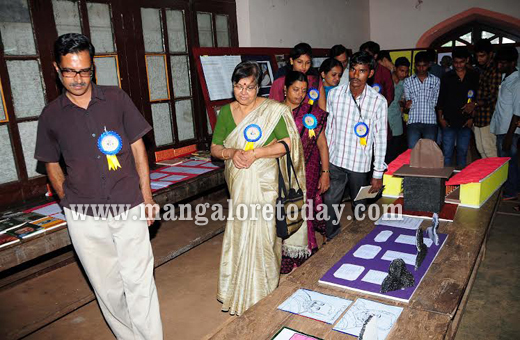
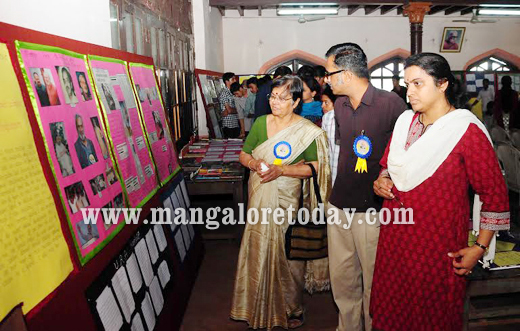
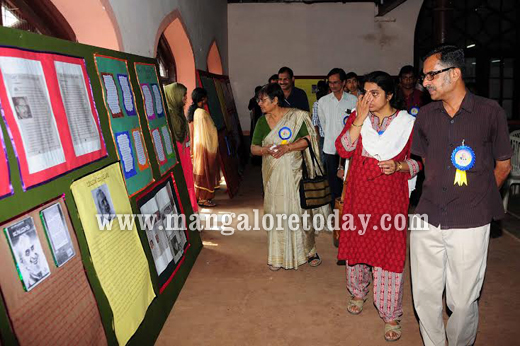
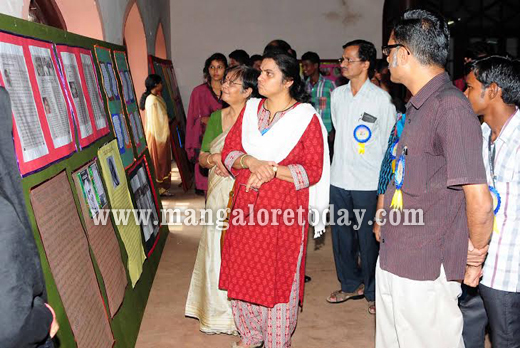
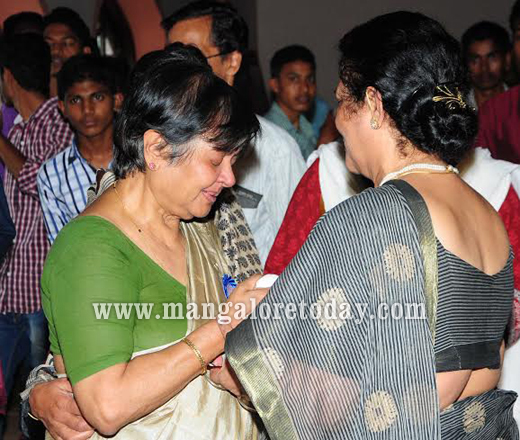
“Criticism was not new to him or to his family. But then, attacks were on an intellectual ground in the past which he readily accepted, where as it stooped into to a personal level in the recent years. Whenever we used to insist to stop commenting, he would justify with a hope that young people who swear at him will eventually change,” she said.
Anuradha disclosed that the family has been receiving letters and emails abusing Ananthamurthy even after his death. “We have received several abusive letters from people of Dakshina Kannada too,” she said.
Reacting to a query, URA’s wife Esther Ananthamurthy justified his statement on Narendra Modi becoming the PM. “URA did not say that he will leave India if Modi becomes the prime minister, but he had stated that he does not wish to live in the country if Modi is elected as the PM. As a citizen of this country he was free to express his opinion on Modi or others too,” she said.
Recalling the good old days, Esther said that marrying Ananthamurthy opened up a new world to her. “The house was filled with his students, friends and guests all the time. It helped me to evolve as a person. It was worthwhile spending my life with him,” she said.
Describing some of the lesser known traits of her father, Anuradha said that Ananthamurthy used to shut himself and write whenever he was working on a novel or stories. People in his inner circle were all youngsters and he always wanted to stay connected to them. Despite aging, he was technology savy and learnt the operation of computer and latest phones with a child like enthusiasm. “He was not just a father to me and my brother, but to several other youngsters around,” she said.
On last rites : Responding to the criticisms surrounding Ananthamurthy’s last rites which were carried out in Madhwa Brahmin tradition, Anuradha said that it was purely the family’s choice. “He was never a non-religious man, rather he respected all religions.” “He had reverence towards Vaidik system though he criticised some of the superstitious practices in it. There was no confusion in his beliefs. He was clear in his thought and was spiritual in nature. We conducted his last rites in the way which would have made him happy and as he would have wanted,” she said.
Journalist Deepa Ganesh who has translated several works of URA, said that sifting through the layers of emotions of his works was the toughest part of the translation.
- ‘What kind of culture are we developing?’: SC slams freebies given by states
- Karnataka man kills wife over loan dispute, buries body in house compound
- Bill Gates pulls out of mega India AI Summit amid Epstein files row
- Google to set up India-US undersea cable for AI
- Can’t say when I’ll return to India; legally barred from leaving UK: Mallya to Bombay HC
- SC grants bail to accused in 2024 Pune Porsche accident case
- Galgotias University asked to vacate AI Summit after row over Chinese robodog: Sources
- YouTube suffers global outage, says working on a full fix
- HC quashes defamation case against Rahul Gandhi for 40% commission ads against BJP
- Bengaluru: Kannada TV actress secretly filmed in washroom, blackmailed for money
- Drugs worth Rs 21.50 cr seized in Bengaluru, 15 peddlers including three foreign nationals held
- Court awards death penalty to three for gang rape of Israeli tourist, murder of Odisha man in Hampi
- Udupi: Private bus driver killed in head-on collision between two bikes
- Mangaluru: Leopard spotted near house in Shaktinagar, residents alarmed
- Dakshina Kannada DC, SP to visit schools to boost SSLC students’ confidence ahead of exams
- Mangaluru: Namma Saras Mela 2026 — National-Level SHG expo at Karavali Utsav Grounds from Feb 20 to 28
- Udupi: Woman duped of Rs 7.1 lakh in online parcel scam
- Mangaluru: Kumbla youth found hanging; love failure suspected, girl’s name written in blood
- Mangaluru: Catholics begin Lenten season with Ash Wednesday observance
- Mangaluru: Absconding rowdy-sheeter Safwan Hussain, accused in 21 cases, arrested after 9 years on the run
- BJP Mangaluru South holds massive foot march on VB-G RAM G, slams Congress over corruption allegations
- Montepadavu landslide case: Victim breaks down before Human Rights Commission
- Ramzan fasting to begin on February 19 in Dakshina Kannada and Udupi
- Udupi: Pedestrian critically injured after being run over by crane in Perampalli
- Mangaluru: Expert PU College students shine in JEE Main 2026; 15 score above 99 percentile
- Mangaluru Student Goes Missing; Ullal Police Register Case
- APD Foundation Joins WHO Civil Society Commission
- Daiva’s prediction comes true: Janardhan Reddy walks free from jail
- Skills and Competencies Take Center Stage at MSN Dialogue Series
- Court remands Maoist Lakshmi to six-day police custody
- Sandhya Shenoy honored with Society for Materials Chemistry Medal-2024
- White Cornus Apartment in Mangaluru
- City girl wins first place in state-level spell bee competition
- Alleged ‘Love Jihad’ Case in Mangaluru: Woman left home voluntarily, says police
- Girl fatally struck by reckless two-wheeler near Belman
- New residential complex for the judges inaugurated in Mangaluru
- Absconding accused nabbed after 8 years
- Truck with cylinders turns turtle in Beltangady
- Bhoota Kola artist dies of cardiac arrest
- Development of the country should be our goal: Ganesh Karnik
- CITY INFORMATION
- TRAVEL
- TOURIST INFORMATION
- HEALTH CARE
- MISCELLANEOUS




 Write Comment
Write Comment E-Mail
E-Mail Facebook
Facebook Twitter
Twitter  Print
Print 


